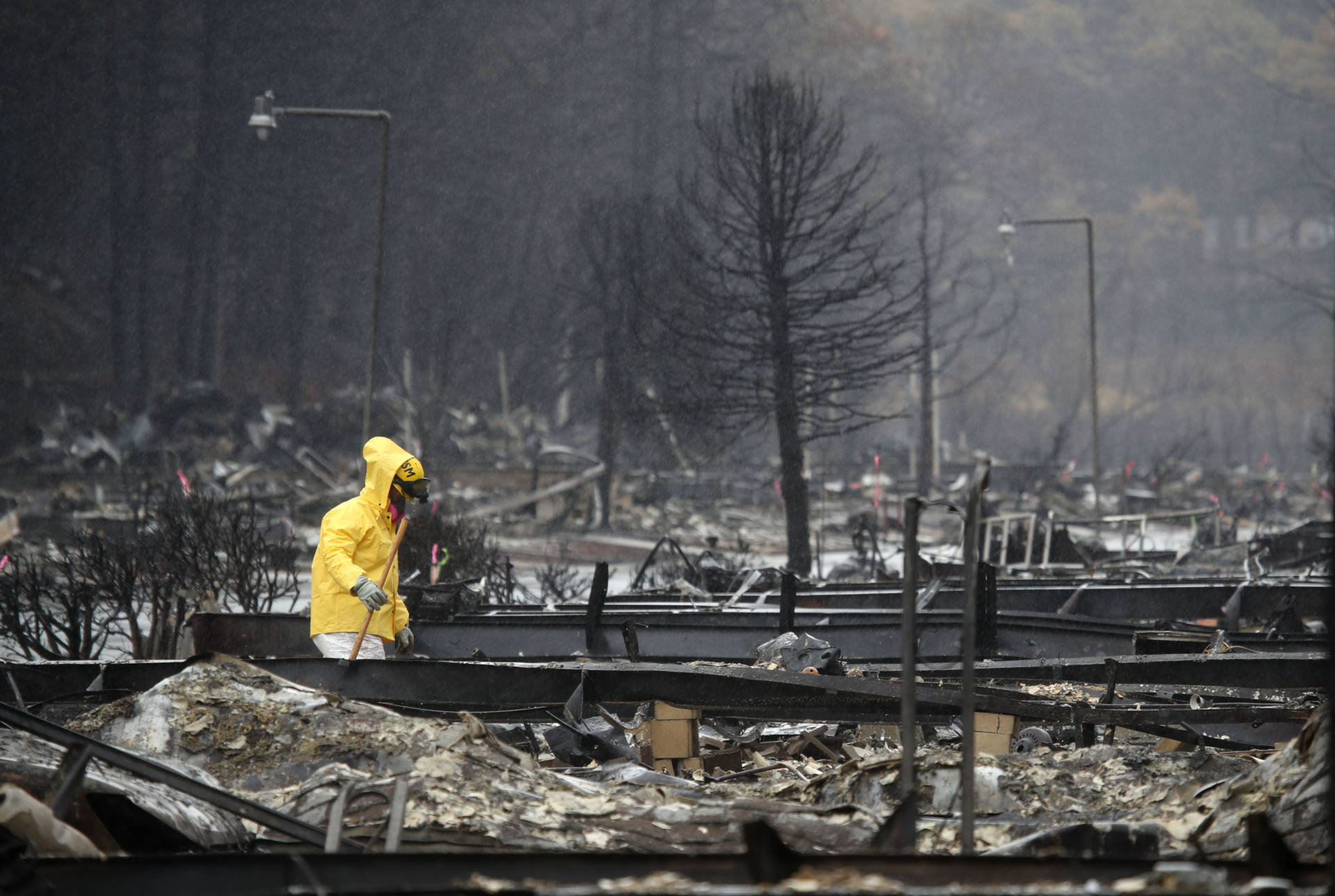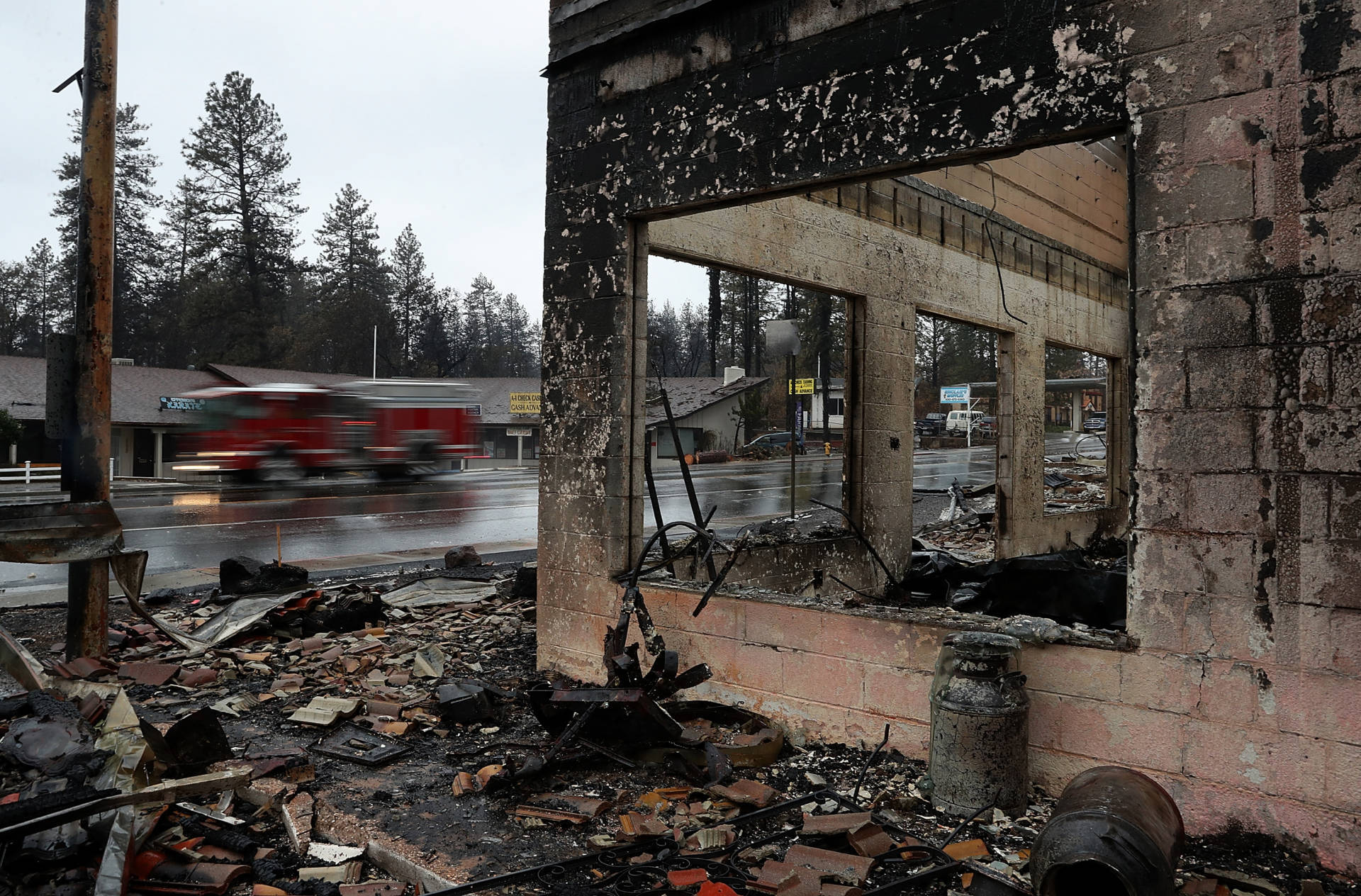Lawmakers introduced bills this week to improve emergency alerts and create a council tasked with wide-ranging responsibilities around preparing California for fires — the first of what seems likely to be a series of 2019 proposals tackling the state’s wildfire crisis.
One of the proposals — a wide-ranging bill by Assemblyman Jim Wood whose district stretches from Santa Rosa north to the Oregon border — would create new building standards for construction in high fire hazard zones, and create a state fund to help homeowners finance fire safety improvements.
The proposals come just three months after Wood and other lawmakers wrapped up weeks of hearings on the state’s wildfire policies, which resulted in a package of bills signed by Gov. Jerry Brown. But before many of those laws could even take effect, California was hit by two devastating fires, including the most destructive and deadly blaze in state history.
“I imagine there will be a pretty big emphasis on this, and there should be,” Wood said, noting that his bill is aimed at preventing and limiting fires. “It goes back to that old adage — an ounce of prevention is worth a pound of cure. We haven’t focused on prevention enough.”
But lawmakers are also grappling with how to respond to blazes once they break out.
On Tuesday, the one year anniversary of the devastating Thomas Fire in her Santa Barbara district, Sen. Hannah Beth Jackson introduced a bill that would make it easier for local governments and colleges to obtain contact information for their residents for the purpose of issuing emergency alerts.
Senate Bill 46 would build on another law Jackson authored, which takes effect in January and gives county governments access to resident’s contact information.
The first bill allowed counties to access utility bills to get that contact information. SB 46 not only gives cities, universities and colleges access to the information as well, but also allows government agencies to access wireless company records to get that information.
Jackson said she’s trying to tackle a problem that has arisen in every major fire in the past year: Most California residents have not signed up for emergency alert systems offered by their local government.
“So rather than have people opt-in to the system — we’ve discovered that people just don’t — we are going opt them in. They will have a right to opt out … but we will try to automatically get them into a system, so that they get these emergency alerts in real time,” she said.
Jackson’s bill would also let social service agencies give counties, cities and colleges information about people who are elderly or have disabilities, “so that we know who the people are that require the most support and assistance in being able to escape,” Jackson said.

Assemblyman Wood’s North Bay district was also scarred by fire in 2017. The bill he introduced Monday goes well beyond emergency alerts, and would create a new body to oversee how communities plan for wildfires and how they respond once fires break out.
The Community Fire Preparedness Council created under Assembly Bill 38 would be responsible for reviewing local wildfire plans, developing best practices for alerts and evacuations and organizing fire drills.
“If we establish a council like this, it makes pretty clear that this is a big, big statewide priority — and that sends a very strong message,” Wood said.
“It becomes the umbrella organization for local community fire preparedness councils … California is an extremely diverse state, and having a council that can be helpful with resources and overarching policies, and then giving regional and community fire councils the ability to have flexibility to do what’s best in their communities is big part of why it’s structured this way.”
The council would also be tasked with tackling one of the most intransigent issues of the wildfire debate: How to encourage or even require more fire-resistant buildings throughout the state.
Wood wants to create a new revolving loan fund that would offer no- or low-interest loans for homeowners to replace or install “fire-hardening” features. Wood said that would include things like fire-resistant roofing.
Additionally, AB 38 would require the state Community Fire Preparedness Council to develop a list of construction features that must be retrofitted, or built into new construction in high fire severity zones. These features, once approved, would be required for all homes and commercial buildings starting Jan. 1, 2024.
Wood acknowledged that the state telling local communities or residents how or where to build could anger some Californians.
But, he said, “I think the time is right to have these discussions.”
“It’s not without controversy. People own land and want to do with it what they deem fit, but I also believe you have a responsibility as a landowner to make sure you protect your neighbors,” he said.
Lawmakers will likely be faced with a number of tough choices over fire prevention, preparedness and response in 2019. Thousands of Butte County residents remain homeless in the aftermath of the Camp Fire, which killed at least 85 people and destroyed more than 18,000 buildings.
Some of the discussion will be around more immediate relief for the survivors of the Camp Fire and Woolsey Fire, which killed three people and burned more than 1,500 structures in Ventura and Los Angeles Counties.
For example, Assemblyman Jim Gallagher, who represents portions of Butte County, introduced two bills this week aimed at putting more state funds towards helping recovery in the communities impacted by the Camp Fire.
But lawmakers will also have to tackle more controversial questions around wildfire liability and the future of the state’s utilities.

